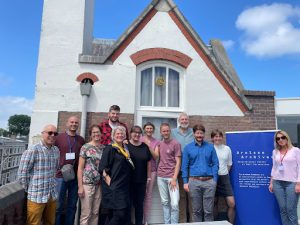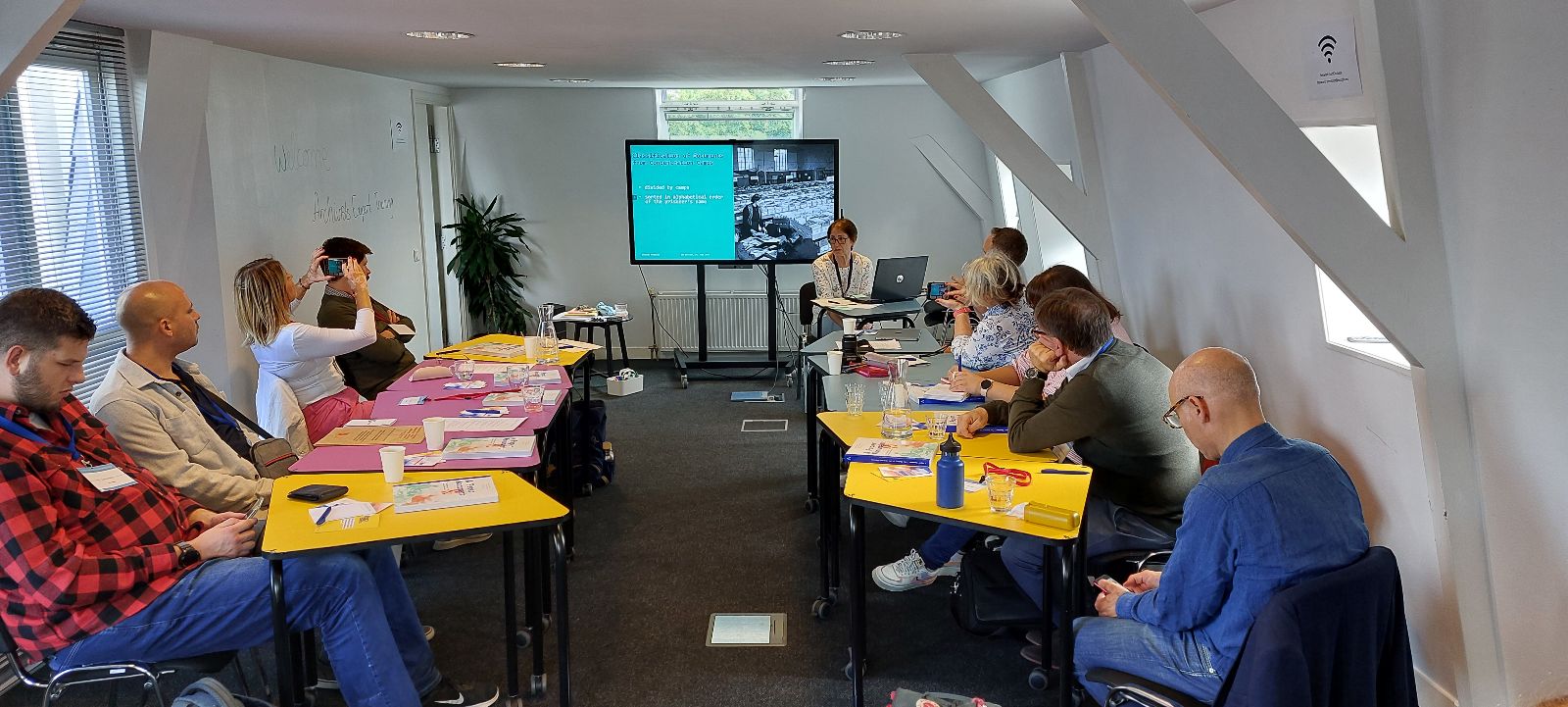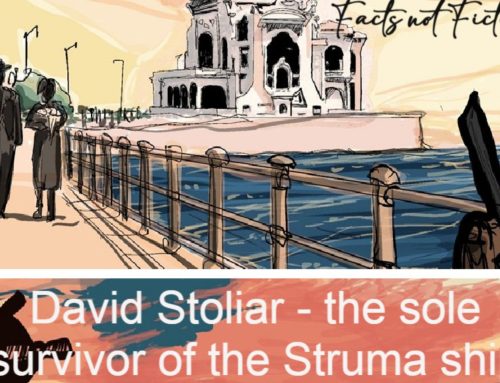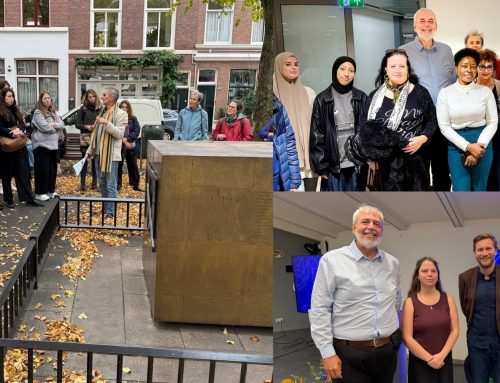Why is remembrance important? Why do we continue to discuss the legacies of the Nazi regime and their collaborators across Europe today? How can we equip young people to critically engage with the history of the Holocaust and combat misinformation about the Second World War and Historical Genocides?
In partnership with Terraforming, Intercultural Institute Timișoara, and the Arolsen Archives, EuroClio kicked off the first Expert Training for Archivists as part of our new project, Facts Not Fiction – Young Historians Show How to Learn from the Past, in The Hague on 15 – 17 July 2024.
Facts not Fiction aims to empower history educators, tour guides, archivists, museum educators, graphic novelists and other professionals in the field of remembrance, to enable young people to research local histories of persecution during the Nazi era. You can learn more about this project here.
The archivists were the first group of history-related professionals to participate in the series of two-day Expert Training Workshops. We welcomed archivists from Serbia, Germany, the Netherlands and Hungary.
Day 1
In the first session of the day, participants were given a presentation explaining the origins of our partners the Arolsen Archives, and the organisation’s journey as the International Tracing service set up at the end of the Second World War, with records inaccessible to the public, to the historical archive it is today, leading educational programmes about the Holocaust in Germany. Participants were then introduced to Ester, the e-learning platform produced by our partner Terraforming which uses storyboards to create educational materials about the Second World War and help students to create graphic novels.
After a knowledge exchange session where each of the archivsts described collections and focus of the archive in which they worked, Timo Nahler led a session demonstrating how to use the online archives of Arolsen. Following this, participants were put into groups and given a selection of sources for a discussion moderated by Lilja Girgensohn, “Football players in Focus”. Each group discussed the merits of the sources assigned to them and the ways in which they might approach them with a younger audience.
Day 2
Day Two kicked off with an exciting visit to the impressive Nationaal Archief beside Den Haag Central Station. Staff at the archive welcomed us with a lecture, giving some background to the scope and focus of the Dutch National archives as well as the educational programmes they had been developing in the last few years.
The group had the privilege to experience one such programme themselves, an immersive digital game based on the Second World War whereby participants use iPads, torches and clues to discover historical facts in a competitive hunt. Not only was the game exceedingly interesting and technologically impressive, it also raised some very relevant and interesting questions for our archivists about ways to engage young people with archival records and the ethics of gamification.
After lunch back at the EuroClio offices, participants reflected on their experiences at the archive and how it tied into the workshops. Following this brainstorming session, our archivists concluded a number of best practices for designing educational archival packages.
Such practices included:
- Incorporating good storytelling and drawing on personal details
- Always contextualising information
- Using targeted questions
- Identifying points of attachment in the curriculum
- Revealing information slowly
- Gamification
- Emotions networking
- Incorporating local context
- Varying the levels of difficulty/ engagement
- Choosing sources relevant to students’ current interests
At the very end, our participating members reflected on their time together, noting the inspiring effect that had been achieved through meeting new people and discussing ideas together based on diverse experiences. Many felt that it had validated and confirmed the mission of their archival institutions back home, in trying to reach out and educate the public about the importance of learning about the Holocaust and the Second World War.














